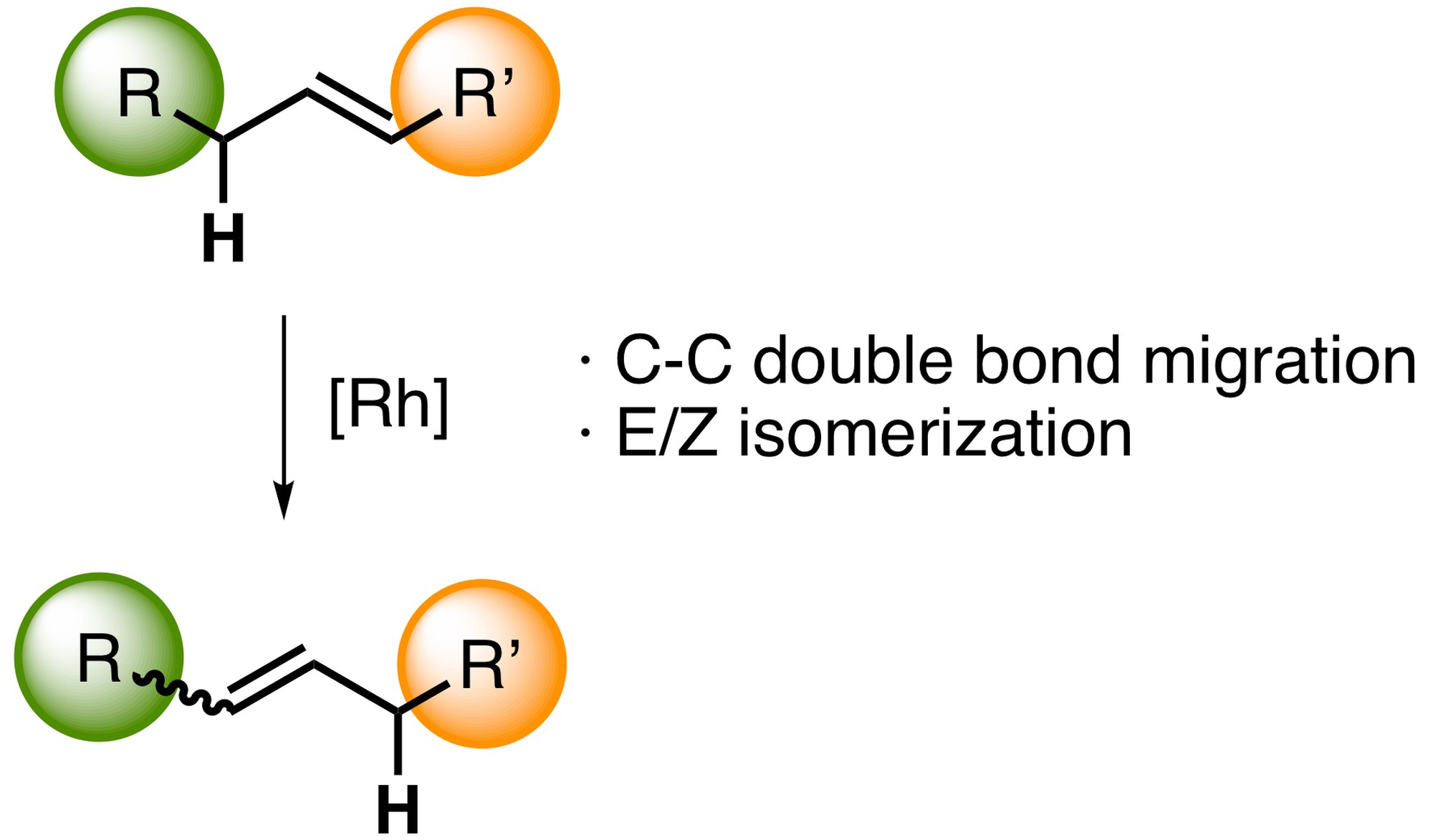Rhodium-Catalyzed Isomerization of Alkenes

Alkenes are ubiquitous structural components in chemistry and biology, and the migration or isomerization of the carbon-carbon double bond is related to key steps in several processes. In fact, this chemical reaction enables the synthesis of valuable compounds. Therefore, knowledge about the mechanism of the process is crucial for the development of optimal synthetic procedures.
In literature, ability of organometallic compounds to form stable complexes with olefins, and their efficiency in catalyzing double bond migrations and/or E/Z interconversion is reported. It is assumed that the feasibility of the process is often controlled by thermodynamic factors, in which some plausible intermediates are postulated. However, the exact reaction mechanism on how rhodium complexes catalyzed this reaction remains unraveled.
The objectives of this project are: (i) analysis of the electronical properties of different Rh complexes as a function of the coordination sphere (ii) evaluation of the stability of Rh-alkene complexes (iii) exploration of the isomerization reaction mechanism (iv) evaluation of the catalytic performance in selected systems.
To achieve these goals, the candidate will learn how to perform DFT optimizations of stationary points (reactants, products, intermediates and transition structures), analyze the topology of the orbitals and explore the energy surface associated with reaction profiles.
The candidate should have a basic knowledge on quantum mechanics (assumed in chemistry and physics BSc. students). Good background on organic/organometallic chemistry would be welcome.
